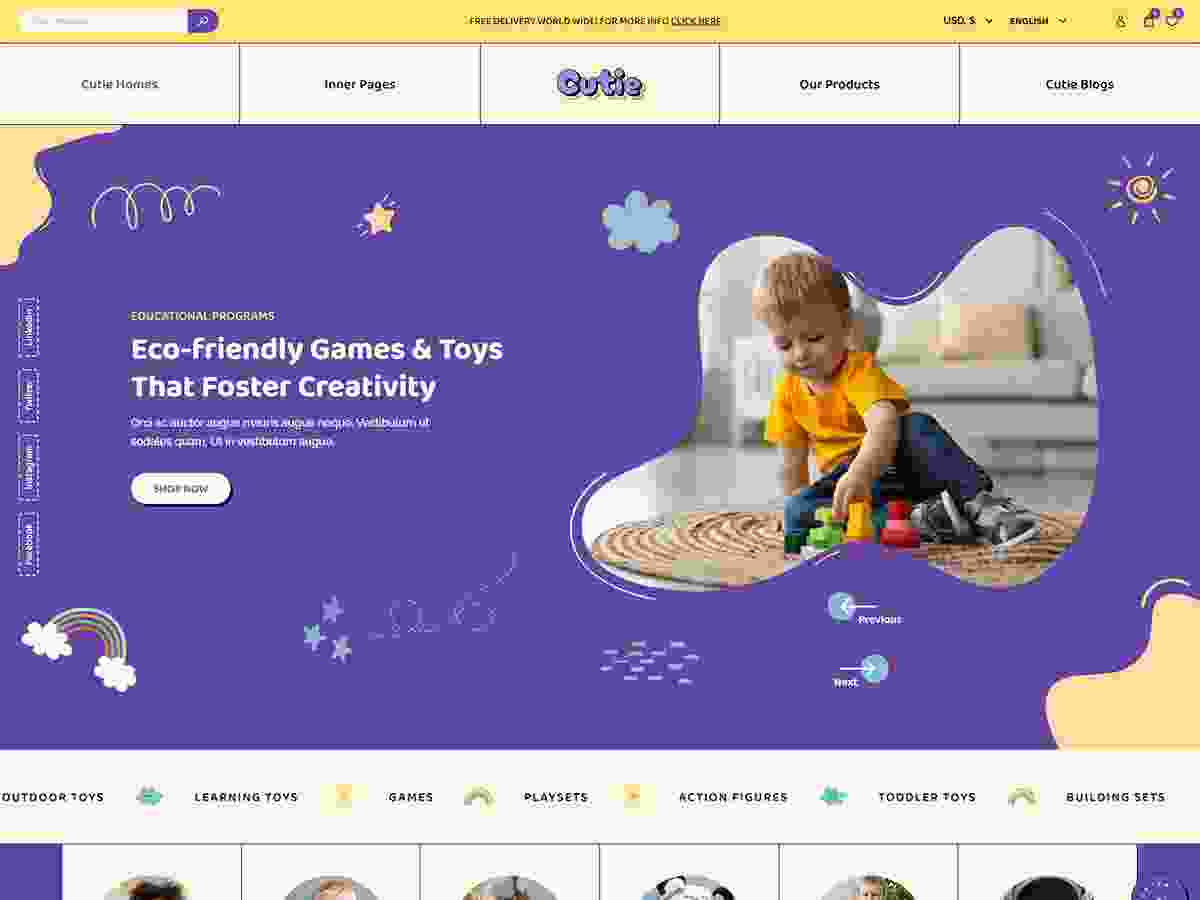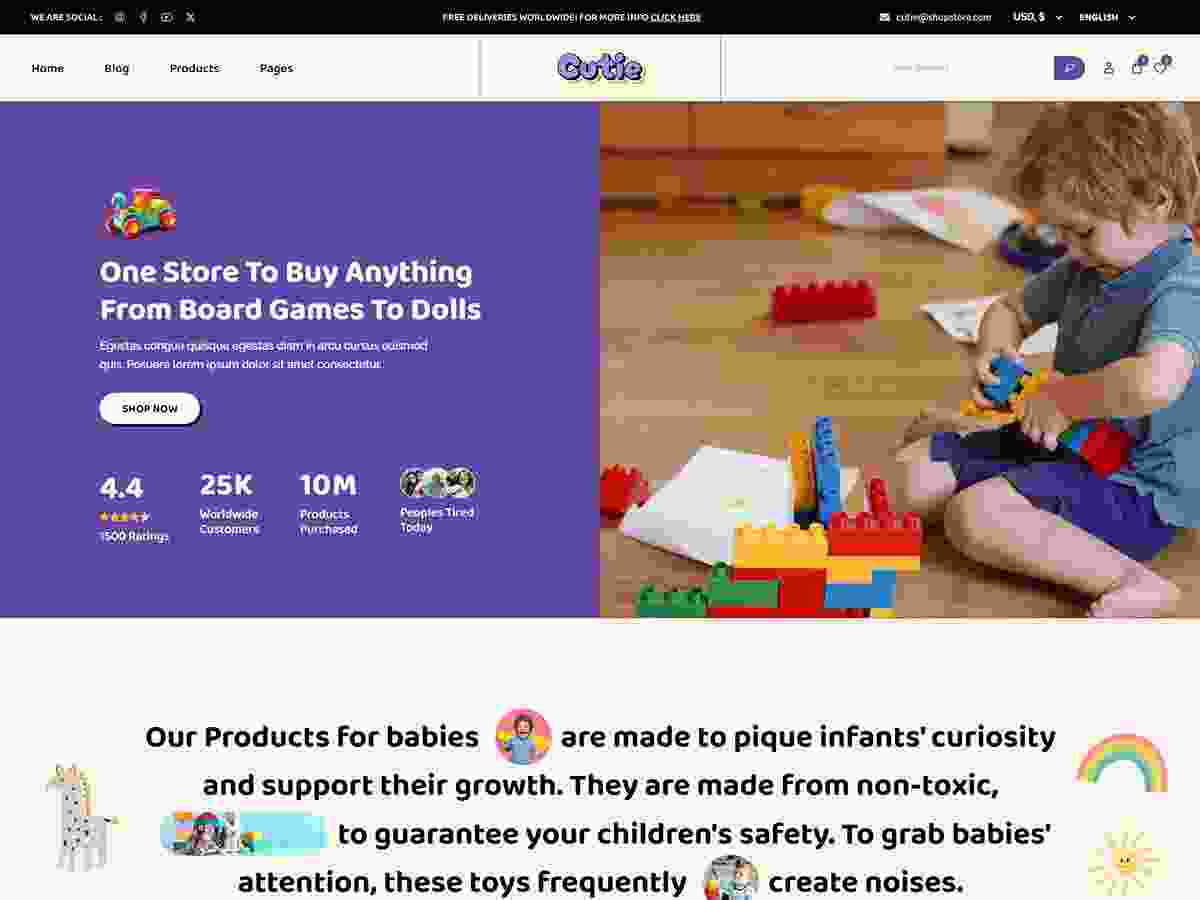Spa Brokers specialize in facilitating the sale, purchase, or lease of spa businesses, offering expertise in valuation, marketing, and negotiation. Spa-wear.com understands the importance of finding the right professionals to guide you through the process, ensuring a smooth and successful transaction whether you’re looking to buy, sell, or lease a spa. We are committed to providing resources and connections to help you make informed decisions. Consider this your complete guide to spa business and spa treatment, and more.
1. What Exactly Do Spa Brokers Do?
Spa brokers act as intermediaries, helping those looking to buy or sell spa businesses. They bring specialized knowledge of the spa industry to the table.
Spa brokers play a crucial role in the spa industry, acting as specialized real estate agents and business consultants. They focus on the unique aspects of spa transactions, offering expertise in several key areas:
1.1. Valuation of Spa Businesses
Spa brokers assess the fair market value of a spa. They consider financial performance, location, equipment, and intangible assets like brand reputation. This valuation ensures sellers receive a reasonable price and buyers make informed investments.
1.2. Marketing Spa Businesses for Sale
Brokers create marketing strategies to attract potential buyers. This includes preparing marketing materials, listing the spa on relevant platforms, and directly contacting potential buyers. Their goal is to showcase the spa’s strengths and unique offerings.
1.3. Identifying Potential Buyers or Sellers
Spa brokers leverage their networks to find suitable buyers for spa businesses. They pre-qualify buyers to ensure they are serious and financially capable. Conversely, they assist individuals looking to acquire a spa, matching them with businesses that meet their criteria.
1.4. Negotiating Deals
Brokers facilitate negotiations between buyers and sellers. They aim to reach mutually beneficial agreements, addressing price, terms, and conditions of the sale. Their expertise helps navigate complex negotiations and resolve potential conflicts.
1.5. Due Diligence Assistance
Spa brokers guide buyers through the due diligence process, helping them verify financial records, permits, licenses, and other critical information. This ensures buyers have a clear understanding of the spa’s operations and financial health.
1.6. Transaction Management
Brokers oversee the entire transaction, coordinating with attorneys, accountants, and other professionals to ensure a smooth closing. They handle paperwork, manage timelines, and address any issues that arise during the process.
1.7. Market Knowledge
Spa brokers possess in-depth knowledge of the spa industry, including trends, competition, and regulatory requirements. This expertise enables them to provide valuable insights and advice to clients.
1.8. Confidentiality
Brokers maintain strict confidentiality throughout the transaction, protecting sensitive information about the spa and its owners. This is essential to prevent disruption to the business and maintain trust between parties.
1.9. Risk Management
Spa brokers help clients identify and mitigate potential risks associated with buying or selling a spa. This includes assessing environmental concerns, lease terms, and potential liabilities.
1.10. Post-Sale Support
Some brokers offer post-sale support, assisting with the transition of ownership and providing guidance to ensure the continued success of the spa. This may include training, operational advice, and introductions to industry contacts.
By offering these comprehensive services, spa brokers streamline the process of buying and selling spa businesses, helping clients achieve their goals efficiently and effectively.
2. What Are the Key Benefits of Using Spa Brokers?
Engaging spa brokers offers numerous advantages for both buyers and sellers in the spa industry.
Using spa brokers provides several key benefits, making the buying or selling process smoother and more successful. Here’s a breakdown of these advantages:
2.1. Expertise and Market Knowledge
Spa brokers possess in-depth knowledge of the spa industry, including current market trends, valuation methods, and legal requirements. This expertise helps clients make informed decisions, whether they are buying or selling.
2.2. Time Savings
Brokers handle many time-consuming tasks, such as marketing the business, screening potential buyers, and managing negotiations. This allows clients to focus on their core business operations or other priorities.
2.3. Access to a Wider Network
Spa brokers have established networks of potential buyers, sellers, and industry professionals. This network can significantly expand the reach of a sale or purchase, increasing the chances of finding the right match.
2.4. Confidentiality
Brokers maintain strict confidentiality throughout the transaction, protecting sensitive information about the spa and its owners. This is crucial to prevent disruption to the business and maintain trust.
2.5. Negotiation Skills
Spa brokers are skilled negotiators who can help clients achieve the best possible outcome in a sale or purchase. They understand the nuances of spa transactions and can effectively advocate for their clients’ interests.
2.6. Objective Advice
Brokers provide objective advice and guidance, free from emotional attachments to the business. This can be particularly valuable for sellers who may have difficulty separating their personal feelings from the business transaction.
2.7. Assistance with Due Diligence
Spa brokers can assist buyers with the due diligence process, helping them verify financial records, permits, licenses, and other critical information. This ensures buyers have a clear understanding of the spa’s operations and financial health.
2.8. Transaction Management
Brokers oversee the entire transaction, coordinating with attorneys, accountants, and other professionals to ensure a smooth closing. They handle paperwork, manage timelines, and address any issues that arise during the process.
2.9. Valuation Expertise
Spa brokers can accurately assess the value of a spa business, considering factors such as financial performance, location, equipment, and intangible assets. This ensures sellers receive a fair price and buyers make informed investments.
2.10. Risk Mitigation
Spa brokers help clients identify and mitigate potential risks associated with buying or selling a spa. This includes assessing environmental concerns, lease terms, and potential liabilities.
2.11. Maximizing Value
For sellers, spa brokers can help maximize the value of their business by identifying areas for improvement and showcasing the spa’s strengths. This can lead to a higher sale price and better terms.
2.12. Finding the Right Fit
For buyers, spa brokers can help find a spa business that aligns with their goals, budget, and expertise. This ensures a successful acquisition and a strong foundation for future growth.
By leveraging the expertise and resources of spa brokers, clients can navigate the complex process of buying or selling a spa with confidence, achieving their desired outcomes efficiently and effectively.
3. Who Typically Needs the Services of a Spa Broker?
Several types of individuals and entities can benefit from the expertise of spa brokers.
The services of a spa broker are valuable to a wide range of individuals and entities involved in the spa industry. Here are some of the key groups who typically need these specialized services:
3.1. Spa Owners Looking to Sell
Owners who are retiring, pursuing other ventures, or simply seeking to liquidate their investment can benefit from a broker’s expertise in valuing and marketing their spa for sale.
3.2. Entrepreneurs Seeking to Buy a Spa
Individuals looking to enter the spa industry or expand their existing portfolio can use a broker to find suitable spa businesses for sale that meet their criteria.
3.3. Investors Interested in the Spa Industry
Investors seeking to diversify their portfolio with spa businesses can rely on brokers to identify promising investment opportunities and conduct due diligence.
3.4. Franchisors Looking to Expand
Spa franchisors can use brokers to find potential franchisees or to acquire existing spa businesses to convert into franchised locations.
3.5. Banks and Lending Institutions
Banks and lending institutions often require a professional valuation of a spa business before providing financing for a sale or acquisition. Spa brokers can provide these valuations.
3.6. Landlords Seeking Spa Tenants
Landlords looking to lease their commercial spaces to spa businesses can use brokers to find qualified tenants with a proven track record.
3.7. Spa Managers Aspiring to Ownership
Spa managers who dream of owning their own spa can work with brokers to find affordable and well-managed spas for sale.
3.8. Real Estate Developers
Developers planning to incorporate a spa into their project can use brokers to conduct market research and identify potential spa operators.
3.9. Spa Chains Looking to Acquire Independent Spas
Large spa chains often acquire independent spas to expand their market share. Brokers can help them identify suitable acquisition targets.
3.10. Individuals Seeking a Career Change
Professionals from other industries looking to transition into the spa industry can use brokers to find spa businesses for sale and receive guidance on management and operations.
3.11. Spa Consultants
Spa consultants may refer their clients to spa brokers when they need assistance with buying or selling a spa business.
3.12. Estate Planners
Estate planners may engage spa brokers to value and sell spa businesses as part of estate settlements or business succession planning.
In summary, anyone involved in the purchase, sale, or investment of spa businesses can benefit from the expertise and services of a spa broker. Their specialized knowledge and network can streamline the transaction process and ensure a successful outcome.
4. How Do Spa Brokers Value a Spa Business?
Valuing a spa involves a comprehensive assessment of its financial, operational, and market aspects.
Spa brokers use several methods to determine the value of a spa business. These methods consider various factors to arrive at a fair and accurate valuation. Here are the primary approaches they use:
4.1. Income Approach
This method focuses on the spa’s potential to generate future income. It’s based on the principle that the value of a business is the present value of its expected future earnings.
Capitalization of Earnings Method: This involves estimating the spa’s future earnings (typically net profit or cash flow) and dividing it by a capitalization rate. The capitalization rate reflects the risk and return expectations associated with the investment.
Discounted Cash Flow (DCF) Method: This method projects the spa’s cash flows over a specific period (e.g., 5-10 years) and discounts them back to their present value using a discount rate. The discount rate accounts for the time value of money and the risk associated with the cash flows.
4.2. Asset Approach
This method focuses on the value of the spa’s assets, both tangible and intangible.
Book Value Method: This involves calculating the net asset value of the spa by subtracting total liabilities from total assets as reported on the balance sheet. This method is rarely used alone as it doesn’t reflect the market value of the assets.
Adjusted Net Asset Value Method: This is a more refined version of the book value method. It involves adjusting the book values of the assets to reflect their fair market value. This includes valuing real estate, equipment, inventory, and intangible assets like brand reputation and customer relationships.
4.3. Market Approach
This method compares the spa to similar businesses that have recently been sold.
Comparable Sales Method: This involves analyzing recent sales of comparable spa businesses in the same geographic area or industry. The broker considers factors such as revenue, profitability, location, size, and services offered to determine a reasonable valuation.
Rule of Thumb Method: This involves using industry-specific rules of thumb, such as a multiple of revenue or earnings, to estimate the value of the spa. These rules of thumb are typically based on historical data and industry averages.
4.4. Factors Considered in Valuation
In addition to these methods, spa brokers also consider several qualitative and quantitative factors when valuing a spa business:
- Financial Performance: Revenue, profitability, cash flow, and financial ratios
- Location: Accessibility, visibility, demographics, and competition
- Lease Terms: Rent, lease length, and renewal options
- Equipment: Condition, age, and value of spa equipment
- Client Base: Size, loyalty, and demographics of the client base
- Staff: Experience, training, and retention of spa staff
- Brand Reputation: Brand awareness, online reviews, and social media presence
- Competition: Number and strength of competitors in the area
- Industry Trends: Current and future trends in the spa industry
- Intangible Assets: Trade secrets, customer lists, and non-compete agreements
4.5. The Valuation Process
The valuation process typically involves the following steps:
- Initial Consultation: The broker meets with the spa owner to gather information about the business and understand their goals.
- Data Collection: The broker collects financial statements, tax returns, lease agreements, and other relevant documents.
- Site Visit: The broker visits the spa to assess its physical condition, equipment, and overall ambiance.
- Market Research: The broker conducts market research to gather data on comparable sales and industry trends.
- Valuation Analysis: The broker uses the income, asset, and market approaches to develop a preliminary valuation.
- Report Preparation: The broker prepares a detailed valuation report that summarizes the findings and provides a range of values for the spa business.
- Presentation and Discussion: The broker presents the valuation report to the spa owner and discusses the findings and recommendations.
By using these methods and considering these factors, spa brokers can provide a comprehensive and accurate valuation of a spa business, helping buyers and sellers make informed decisions.
5. What Should You Look For in a Spa Broker?
Choosing the right spa broker is essential for a successful transaction.
When selecting a spa broker, it’s important to consider several key factors to ensure they are the right fit for your needs. Here’s what you should look for:
5.1. Experience and Expertise
- Industry Knowledge: Look for a broker with a deep understanding of the spa industry, including market trends, operational nuances, and regulatory requirements.
- Track Record: Review their past transactions and success stories. A broker with a proven track record is more likely to deliver results.
- Valuation Skills: Ensure they have the expertise to accurately value a spa business, considering both tangible and intangible assets.
- Negotiation Skills: Choose a broker with strong negotiation skills to help you achieve the best possible outcome in a sale or purchase.
5.2. Network and Resources
- Extensive Network: A well-connected broker will have a broad network of potential buyers, sellers, and industry professionals.
- Marketing Resources: They should have access to effective marketing tools and strategies to promote your spa business for sale.
- Professional Affiliations: Membership in relevant industry associations can indicate a broker’s commitment to professionalism and ethical standards.
5.3. Communication and Transparency
- Clear Communication: Choose a broker who communicates clearly and promptly, keeping you informed throughout the transaction process.
- Transparency: They should be transparent about their fees, processes, and potential conflicts of interest.
- Responsiveness: A responsive broker will be available to answer your questions and address your concerns in a timely manner.
5.4. Confidentiality and Integrity
- Confidentiality: Ensure they have a strong commitment to confidentiality, protecting sensitive information about your spa business.
- Ethical Standards: Choose a broker with a reputation for integrity and ethical conduct.
5.5. References and Testimonials
- Positive Reviews: Read online reviews and testimonials to get a sense of their reputation and client satisfaction.
- References: Ask for references from past clients and contact them to learn about their experience with the broker.
5.6. Local Market Knowledge
- Familiarity with the Area: If you are buying or selling a spa in a specific geographic area, choose a broker who is familiar with the local market conditions and regulations.
5.7. Personalized Service
- Attention to Your Needs: Look for a broker who takes the time to understand your specific goals and tailors their services to meet your needs.
- Availability: Ensure they are available to dedicate the necessary time and attention to your transaction.
5.8. Licensing and Credentials
- Proper Licensing: Verify that the broker has the necessary licenses and credentials to operate in your state or region.
5.9. Technology and Innovation
- Use of Technology: A broker who leverages technology and innovative tools can streamline the transaction process and improve communication.
5.10. Compatibility and Trust
- Good Rapport: Choose a broker with whom you feel comfortable and can build a trusting relationship.
- Shared Vision: Ensure they understand your vision for the spa business and are committed to helping you achieve your goals.
By considering these factors, you can select a spa broker who is well-equipped to guide you through the complex process of buying or selling a spa business, ensuring a successful and rewarding outcome.
6. What Are the Typical Fees for Spa Broker Services?
Understanding the fee structure is essential when working with a spa broker.
The fees for spa broker services can vary depending on several factors, including the size and complexity of the transaction, the location of the spa, and the specific services provided. Here’s a breakdown of the typical fee structures you can expect:
6.1. Commission-Based Fees
- Success Fee: The most common fee structure is a commission-based fee, also known as a success fee. This means the broker only gets paid if the transaction is successfully completed.
- Percentage of Sale Price: The commission is typically calculated as a percentage of the final sale price of the spa business.
- Sliding Scale: The percentage may vary on a sliding scale, with lower percentages for higher-value transactions. For example, the commission might be 10% on the first $500,000 of the sale price, and 8% on the amount above that.
- Typical Range: The typical commission range for spa brokers is between 8% and 12% of the sale price. However, this can vary depending on the factors mentioned above.
6.2. Upfront Fees
- Engagement Fee: Some brokers may charge an upfront engagement fee to cover their initial expenses, such as valuation, marketing, and due diligence.
- Non-Refundable: This fee is typically non-refundable, regardless of whether the transaction is completed.
- Credited Towards Commission: In some cases, the engagement fee may be credited towards the final commission if the transaction is successful.
6.3. Hourly Consulting Fees
- Used for Specific Services: Some brokers may charge an hourly consulting fee for specific services, such as valuation, due diligence, or negotiation.
- Project-Based: This fee structure is less common for the entire transaction but may be used for specific projects or tasks.
6.4. Expense Reimbursement
- Marketing Expenses: The broker may also require reimbursement for certain expenses, such as advertising, travel, and legal fees.
- Detailed Breakdown: These expenses should be clearly outlined in the brokerage agreement, and the broker should provide a detailed breakdown of all costs.
6.5. Hybrid Fee Structures
- Combination of Fees: Some brokers may use a hybrid fee structure that combines elements of the above options. For example, they may charge an upfront engagement fee plus a commission on the sale price.
6.6. Factors Affecting Fees
- Complexity of Transaction: More complex transactions that require extensive due diligence, negotiation, and legal work may command higher fees.
- Location of Spa: Spas located in high-demand areas or with unique features may justify higher fees.
- Services Provided: The scope of services provided by the broker can also affect fees. A full-service broker who handles all aspects of the transaction may charge more than a broker who provides limited services.
6.7. Negotiating Fees
- Negotiable: Broker fees are often negotiable, especially for larger transactions or when the client has a strong negotiating position.
- Shop Around: It’s a good idea to shop around and compare fees from different brokers before making a decision.
- Value for Money: Consider the value you are receiving for the fees you are paying. A skilled broker can help you achieve a higher sale price or find a better deal on a purchase, ultimately saving you money in the long run.
6.8. Written Agreement
- Clear Terms: It’s essential to have a written brokerage agreement that clearly outlines the fees, services, and terms of the relationship.
- Review Carefully: Review the agreement carefully before signing it to ensure you understand all the terms and conditions.
By understanding these typical fee structures, you can negotiate a fair and transparent agreement with your spa broker, ensuring a successful and rewarding transaction.
7. What Are Some Common Mistakes to Avoid When Buying or Selling a Spa?
Avoiding common pitfalls can save you time, money, and stress.
Buying or selling a spa can be a complex process, and it’s easy to make mistakes that can cost you time, money, and stress. Here are some common pitfalls to avoid:
7.1. Insufficient Due Diligence
- Not Verifying Financials: Failing to thoroughly verify the spa’s financial records, including revenue, expenses, and cash flow, can lead to overpaying or buying a business with hidden financial problems.
- Ignoring Legal Issues: Overlooking legal issues such as permits, licenses, lease agreements, and regulatory compliance can result in costly fines or legal battles.
- Skipping Equipment Inspection: Neglecting to inspect the condition of spa equipment can lead to unexpected repair or replacement costs.
7.2. Overvaluing or Undervaluing the Spa
- Emotional Attachment: Allowing emotional attachment to cloud judgment when valuing the spa can lead to unrealistic expectations and missed opportunities.
- Lack of Market Knowledge: Failing to conduct thorough market research and compare the spa to similar businesses can result in an inaccurate valuation.
- Ignoring Intangible Assets: Overlooking the value of intangible assets such as brand reputation, customer relationships, and employee expertise can lead to undervaluing the spa.
7.3. Poor Negotiation Skills
- Setting Unrealistic Expectations: Setting unrealistic expectations for the sale price or purchase terms can derail negotiations and lead to missed opportunities.
- Failing to Compromise: Being unwilling to compromise on key issues can create animosity and prevent a successful deal.
- Lack of Preparation: Failing to prepare for negotiations by gathering information, identifying priorities, and developing strategies can put you at a disadvantage.
7.4. Inadequate Legal and Professional Advice
- Not Hiring an Attorney: Failing to hire an experienced attorney to review legal documents and provide advice can lead to costly legal problems.
- Ignoring Accountant’s Advice: Overlooking the advice of an accountant regarding tax implications and financial planning can result in unexpected tax liabilities.
- Not Using a Spa Broker: Attempting to buy or sell a spa without the assistance of a qualified spa broker can lead to missed opportunities and costly mistakes.
7.5. Poor Communication
- Lack of Transparency: Failing to communicate openly and honestly with the other party can erode trust and create misunderstandings.
- Ignoring Concerns: Overlooking the concerns and questions of the other party can lead to resentment and conflict.
- Poor Documentation: Failing to document all agreements and understandings in writing can lead to disputes and legal battles.
7.6. Rushing the Process
- Impatience: Rushing the buying or selling process to meet arbitrary deadlines can lead to poor decisions and missed opportunities.
- Ignoring Red Flags: Overlooking red flags or warning signs due to impatience can result in costly mistakes.
7.7. Neglecting Employee Considerations
- Failing to Communicate with Employees: Neglecting to communicate with employees about the sale or purchase can create anxiety and lead to employee attrition.
- Ignoring Employee Contracts: Overlooking employee contracts and labor laws can result in legal problems and employee dissatisfaction.
7.8. Inadequate Transition Planning
- Lack of Training: Failing to provide adequate training and support to the new owner or employees can lead to operational problems and customer dissatisfaction.
- Ignoring Customer Relationships: Neglecting to transfer customer relationships and loyalty programs can result in lost revenue and customer attrition.
7.9. Overlooking Marketing and Branding
- Failing to Update Marketing Materials: Neglecting to update marketing materials and online presence can lead to confusion and lost customers.
- Ignoring Brand Consistency: Overlooking brand consistency and messaging can dilute the brand and undermine customer loyalty.
7.10. Ignoring Market Trends
- Failing to Adapt to Changing Trends: Neglecting to adapt to changing market trends and customer preferences can lead to a decline in revenue and competitiveness.
- Not Investing in Technology: Overlooking the importance of technology and online marketing can result in missed opportunities and lost market share.
By avoiding these common mistakes, you can increase your chances of a successful and rewarding transaction when buying or selling a spa.
8. How Can spa-wear.com Help Me Find the Right Spa Apparel?
Spa-wear.com offers a wide selection of high-quality, comfortable, and stylish spa apparel.
While spa brokers can assist with the business aspects of the spa industry, spa-wear.com focuses on enhancing the client experience through premium spa apparel. Here’s how spa-wear.com can help you:
8.1. Wide Selection of Spa Apparel
Spa-wear.com offers an extensive range of spa apparel, including robes, wraps, towels, slippers, and other essential items. Our diverse selection ensures that you can find the perfect apparel to suit your spa’s unique style and client needs.
8.2. High-Quality Materials
We understand the importance of comfort and durability in spa apparel. That’s why we source our products from top manufacturers who use high-quality materials such as soft cotton, plush terry cloth, and luxurious microfiber. Our apparel is designed to provide maximum comfort and withstand the rigors of daily spa use.
8.3. Stylish Designs
Spa-wear.com offers a variety of stylish designs to enhance the aesthetic appeal of your spa. From classic and elegant robes to modern and trendy wraps, our apparel is designed to impress your clients and create a relaxing and inviting atmosphere.
8.4. Customization Options
We offer customization options to help you create a unique and branded look for your spa. You can add your spa’s logo or choose custom colors and designs to create apparel that reflects your brand identity.
8.5. Competitive Pricing
Spa-wear.com offers competitive pricing on all of our spa apparel products. We work directly with manufacturers to ensure that we can offer the best possible prices without compromising on quality.
8.6. Expert Advice
Our team of spa apparel experts is available to provide personalized advice and guidance. Whether you need help selecting the right apparel for your spa or designing custom products, we are here to assist you every step of the way.
8.7. Easy Online Ordering
Spa-wear.com offers a user-friendly online ordering platform that makes it easy to browse our selection, place orders, and track shipments. Our website is designed to provide a seamless and hassle-free shopping experience.
8.8. Fast Shipping
We understand the importance of timely delivery. That’s why we offer fast shipping options to ensure that you receive your spa apparel products as quickly as possible.
8.9. Excellent Customer Service
Spa-wear.com is committed to providing excellent customer service. Our team is available to answer your questions, resolve any issues, and ensure that you are completely satisfied with your purchase.
8.10. Focus on Comfort and Relaxation
Our spa apparel is designed to enhance the comfort and relaxation of your clients. By providing them with soft, luxurious, and stylish apparel, you can create a more enjoyable and memorable spa experience.
8.11. Support for Spa Professionals
Spa-wear.com is dedicated to supporting spa professionals by providing them with the tools and resources they need to succeed. Our high-quality spa apparel can help you create a more professional and inviting atmosphere, attract new clients, and retain existing ones.
8.12. Commitment to Sustainability
We are committed to sustainability and offer a range of eco-friendly spa apparel products made from sustainable materials. By choosing our eco-friendly options, you can reduce your spa’s environmental impact and appeal to environmentally conscious clients.
By offering a wide selection of high-quality, comfortable, and stylish spa apparel, spa-wear.com can help you enhance the client experience and create a more successful spa business.
9. What Are the Latest Trends in the Spa Industry in the USA?
Staying current with spa industry trends can give you a competitive edge.
The spa industry in the USA is constantly evolving, with new trends emerging to meet changing consumer demands and preferences. Here are some of the latest trends shaping the industry:
9.1. Wellness Tourism
- Holistic Approach: Wellness tourism is on the rise, with travelers seeking destinations that offer a holistic approach to health and well-being.
- Immersive Experiences: Spas are increasingly incorporating wellness activities such as yoga, meditation, and mindfulness into their offerings to attract wellness tourists.
9.2. Personalized Spa Experiences
- Customized Treatments: Spas are moving away from one-size-fits-all treatments and offering personalized experiences tailored to individual needs and preferences.
- Technology Integration: Technology such as skin analysis tools and biometric sensors is being used to create customized treatment plans.
9.3. Natural and Organic Products
- Clean Beauty: Consumers are increasingly demanding natural and organic spa products that are free from harmful chemicals and synthetic ingredients.
- Eco-Friendly Practices: Spas are adopting eco-friendly practices such as using sustainable materials and reducing waste to appeal to environmentally conscious clients.
9.4. Technology and Innovation
- Virtual Reality (VR): VR technology is being used to enhance the spa experience by transporting clients to calming and immersive environments.
- AI-Powered Services: Artificial intelligence (AI) is being used to provide personalized recommendations and streamline spa operations.
9.5. Focus on Mental Wellness
- Stress Reduction: Spas are increasingly focusing on treatments and services that promote mental wellness and stress reduction, such as aromatherapy, massage, and mindfulness practices.
- Mental Health Programs: Some spas are offering specialized mental health programs and workshops to address issues such as anxiety, depression, and burnout.
9.6. Medical Spas
- Integration of Medical Services: Medical spas are gaining popularity, offering a combination of traditional spa treatments and medical procedures such as Botox, fillers, and laser treatments.
- Supervised by Medical Professionals: Medical spas are typically supervised by licensed medical professionals to ensure safety and efficacy.
9.7. Men’s Spas
- Targeted Treatments: Men’s spas are catering to the unique needs and preferences of male clients, offering targeted treatments such as sports massage, grooming services, and skincare for men.
- Relaxing Environment: These spas are designed to create a comfortable and relaxing environment for men, with masculine decor and amenities.
9.8. Express Spas
- Quick and Efficient Services: Express spas are offering quick and efficient treatments for busy clients who want to relax and rejuvenate without spending a lot of time.
- Convenient Locations: These spas are often located in convenient locations such as airports, shopping malls, and office buildings.
9.9. Group Spa Experiences
- Social Spa-ing: Group spa experiences are becoming increasingly popular, with friends, families, and colleagues enjoying spa treatments together.
- Customized Packages: Spas are offering customized group packages that include a variety of treatments, activities, and amenities.
9.10. Mobile Spas
- On-Demand Services: Mobile spas are bringing spa treatments and services directly to clients’ homes, offices, or events.
- Convenience and Flexibility: Mobile spas offer convenience and flexibility for clients who want to relax and rejuvenate without leaving their preferred location.
9.11. Sustainable Practices
- Eco-Friendly Products: Spas are increasingly using eco-friendly and sustainable products that minimize environmental impact.
- Waste Reduction: Spas are implementing waste reduction strategies such as recycling, composting, and reducing the use of single-use plastics.
9.12. Technology Integration
- Online Booking: Spas are using online booking systems to make it easier for clients to schedule appointments and manage their accounts.
- Digital Marketing: Spas are leveraging digital marketing channels such as social media, email marketing, and search engine optimization to reach new clients and promote their services.
By staying informed about these latest trends, spa owners and operators can adapt their offerings and marketing strategies to meet the evolving needs and preferences of their clients, ensuring a competitive edge in the dynamic spa industry.
10. Frequently Asked Questions (FAQs) About Spa Brokers
Here are some common questions and answers to help you understand more about spa brokers.
Here are some frequently asked questions (FAQs) about spa brokers to help you better understand their role and services:
10.1. What is a spa broker?
A spa broker is a specialized real estate agent and business consultant who focuses on the sale, purchase, and leasing of spa businesses. They provide expertise in valuation, marketing, negotiation, and transaction management.
10.2. Why should I use a spa broker?
Using a spa broker can save you time, money, and stress. They have in-depth knowledge of the spa industry, access to a wider network of buyers and sellers, and strong negotiation skills. They can also help you with due diligence and ensure a smooth closing.
10.3. How do spa brokers value a spa business?
Spa brokers use various methods to value a spa business, including the income approach, asset approach, and market approach. They consider factors such as financial performance, location, equipment, client base, and intangible assets.
10.4. What are the typical fees for spa broker services?
The typical fee structure is a commission-based fee, calculated as a percentage of the final sale price. The commission range is usually between 8% and 12%. Some brokers may also charge upfront engagement fees or hourly consulting fees.
10.5. How do I choose the right spa broker?
Look for a broker with experience, expertise, a strong network, clear communication, confidentiality, and positive references. Choose someone you feel comfortable with and who understands your goals.
10.6. What are some common mistakes to avoid when buying or selling a spa?
Avoid insufficient due diligence, overvaluing or undervaluing the spa, poor negotiation skills, inadequate legal advice, poor communication, and rushing the process.
10.7. Can a spa broker help me find financing for a spa purchase?
Yes, some spa brokers have relationships with lenders and can assist you in finding financing for your spa purchase.
10.8. What is the difference between a spa broker and a general business broker?
A spa broker specializes in the spa industry and has in-depth knowledge of its unique aspects, such as licensing, regulations, and market trends. A general business broker may not have this specialized expertise.
10.9. How long does it take to sell a spa with a broker?
The timeline can vary depending on factors such as the spa’s location, financial performance, and market conditions. However, a good spa broker can typically sell a spa in 6 to 12 months.
10.10. What are some current trends in the spa industry?
Some current trends include wellness tourism, personalized spa experiences, natural and organic products, technology integration, and a focus on mental wellness.
10.11. How can spa-wear.com help me with my spa business?
Spa-wear.com offers a wide selection of high-quality, comfortable, and stylish spa apparel, including robes, wraps, towels, and slippers. We can help you enhance the client experience and create a more successful spa business.
10.12. Where can I find spa brokers in Scottsdale, Arizona?
You can find spa brokers in Scottsdale, Arizona by searching online directories, contacting industry associations, or asking for referrals from other spa owners and professionals.
By addressing these frequently asked questions, you can gain a better understanding of spa brokers and how they can help you achieve your goals in the spa industry.
Navigating the world of spa businesses can be complex, but with the right information and support, you can make informed decisions. Whether you’re looking to buy, sell, or lease a spa, remember that expertise and resources are available to guide you. For those in the USA, particularly in areas like Scottsdale, Arizona, where the spa industry thrives, connecting with the right professionals is key. Don’t hesitate to explore spa-wear.com for all your spa apparel needs, ensuring your clients experience the utmost comfort and luxury. For further assistance, reach out to us at Address: 7014 E Camelback Rd, Scottsdale, AZ 85251, United States,





